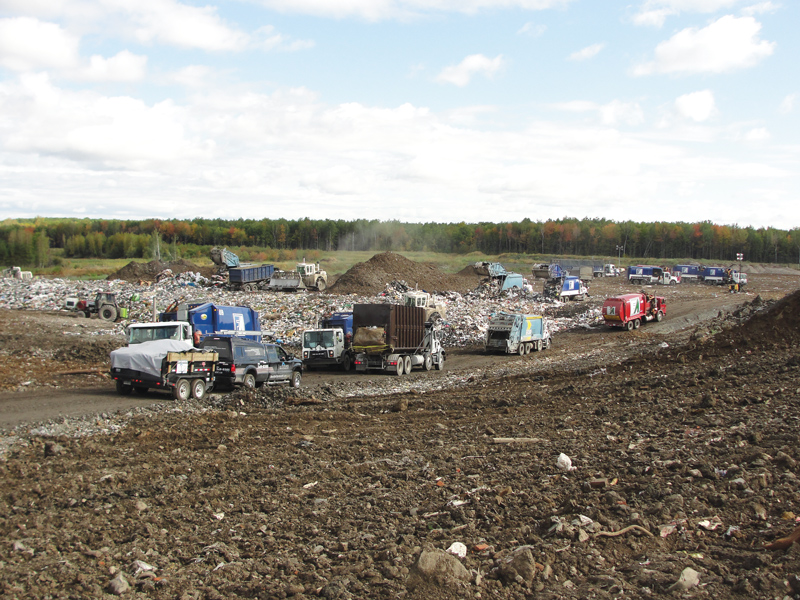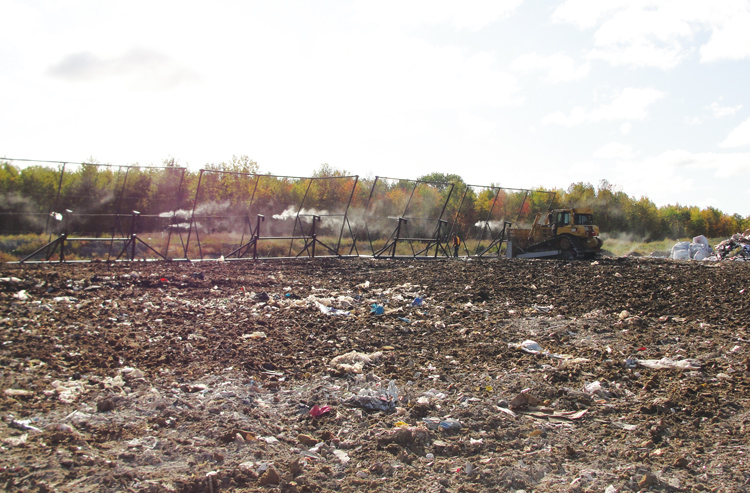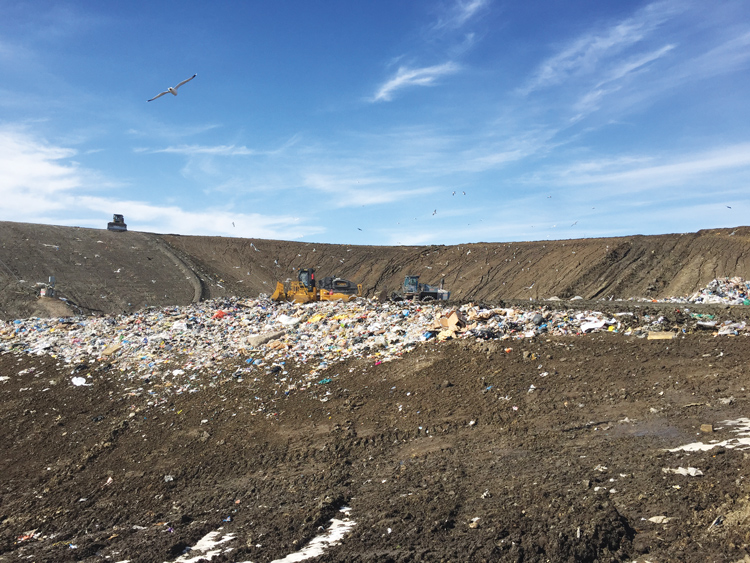As a constantly evolving industry, it is important to be well informed, proactive and safe. Landfill managers share their keys to success.
By Sam Rohr
In an effort to better understand the challenges facing landfill managers today, I asked a group of them, “What are some of the most important things a landfill manager needs to address in order to be successful?” Aside from the everyday site management, they outlined a few issues that are crucial to make a priority.
Regulatory Compliance
The first issue that is a major concern for most managers is environmental regulatory compliance. The modern landfill is scrutinized much more than sites used to be in the past, and aside from just managing the overall waste stream, environmental factors need to be considered. One of the duties that require a lot of close attention is managing the site’s leachate storage to ensure that there are no leaks in the liners of the storage areas. This can be done with groundwater monitoring stations that are used to detect when leachate or other harmful chemicals are leaking into the soil below the retention ponds. Managers need to be sure to immediately address this issue to contain groundwater contamination to avoid fines and costly remediation efforts.

Photos courtesy of GeoLogic Computer Systems.
A manager must also be diligent about inspecting the different waste streams coming into the site and be ready to divert special waste streams, such as hazardous material. This can include items like medical waste that have the potential to become a biological hazard to site personnel as well as materials like asbestos that can cause serious health issues if inhaled. It is important to identify, mark and bury special waste right away to prevent it from becoming a danger to your own site staff. As the landfill industry continues to evolve, a larger focus is being placed on the environmental impact of a site and being proactive upfront can save the manager a considerable amount of hassle in the future.
Operational Efficiency
The second issue is operational efficiency. Obviously, it is important that landfill managers run their landfills as efficiently as possible. Making sure you are hitting your compaction goals and staying on grade are vital to the success of any landfill. The managers I spoke with told me that this is the area where technology, such as a landfill GPS system, becomes an invaluable tool. Aside from being able to see their compaction effort, a GPS system is also used in the management of interim slopes and lifts. One of the managers interviewed said he wishes he had a landfill GPS system 10 years before he actually bought it. He had been having a lot of issues with water management on the surface. Large ponds and puddles had caused the surface to become nearly impassible by the haulers and smaller trucks. They would regularly have to wait to dry out water ponds or risk trucks getting stuck in mud and having to be towed out by bulldozers, slowing down their fill plans. Having the GPS gives them the ability to set and accurately follow interim grades, allowing them to plan out surface grades and divert clean water directly into retention ponds.

Landfills also improve their efficiency, saving time and money, by not having to go out and stake out elevation markers for the operators. The compactors and bulldozers all share the same real-time information, allowing them to see their cut/fill and elevations as they work. Sites also need to manage their cover material, whether it is dirt or auto fluff. Not only keeping an eye on how much material they have, but also how it is being spread on the surface. Efficiency is the key to longevity. Ensuring that the waste is being evenly spread and fully compacted saves airspace and this makes a site much more profitable with much fewer headaches.
Addressing Safety
The third, and most important thing to be addressed according to the managers, is site safety. With large machines and trucks constantly streaming in and out of the working face, ensuring that your site personnel are constantly aware of their surroundings is key. Every landfill manager wants to make sure his employees are being safe and return to their families unharmed after each shift. This can be done with safety briefings. A manager should have weekly safety meetings with their employees to reinforce the site’s safety standards. Repetition is key in order for site safety to become second nature to anyone working in the fill area. This is not limited to site personnel either. Managers should have regular safety briefings with the haulers bringing waste onto the site. They need to make sure that the haulers are following all of the site safety regulations and instructions, like speed limits, protective clothing and following landfill staff directions, such as avoiding areas where they could get stuck. As landfills construct their slopes, the route for the haulers often changes, so managers need to make sure that all of them know the new route to get to the fill.
Aside from basic personal safety, the site also needs to check the loads as they come into the site for things like flammable materials. Due to the gas generated by decomposition, the landfill working face can be an extremely flammable environment. Diverting things like appliances, rubber tires and batteries can help to mitigate some of the dangers. Immediately addressing any signs of a fire is extremely important at safety briefings. Operators are taught to watch for smoke or smoldering sections of the fill area and to quickly cover those areas with dirt to extinguish the oxygen supply to the potential fire. On landfills where there is grass growing, it is important to regularly mow the grass in order to keep it short and green. Long grass dries out at the top and provides a dangerous fuel source for fires to spread. A site needs to operate like one organism, constantly vigilant to controlling the safety hazards. This is why information and safety briefings are so important.

Community Outreach
The last thing that some of the managers thought was important is addressing issues with the local community, such as following up and ensuring that any issues are settled to the best of the manager’s ability. Every landfill manager knows that issues like odor and blowing trash are a constant battle, and if a daily cover is not used properly, this can cause the community around the landfill to complain and make the manager’s life a lot more difficult. Most landfill managers understand this and make sure they are using daily cover, wind fencing and, in some cases, deodorant spray to lessen the impact of the landfill on the local community. Good management can create positive community relations, which can lead to less headaches for managers and fewer permitting fights with the public.
A Constantly Evolving Industry
It was interesting to get a chance to talk to landfill managers and learn a few things that they felt were among the most important issues concerning landfill management today. It is a constantly evolving industry and being well informed, proactive and safe, seem to be the keys to success. | WA
Sam Rohr is the Director of Sales at GeoLogic Computer Systems (Waterford, MI), a maker of landfill GPS equipment and software. He has 11 years of experience in the landfill GPS market and has supported customers across North America at various MSW and C&D landfills. Sam can be reached at (248) 635-1408 or e-mail at [email protected].
